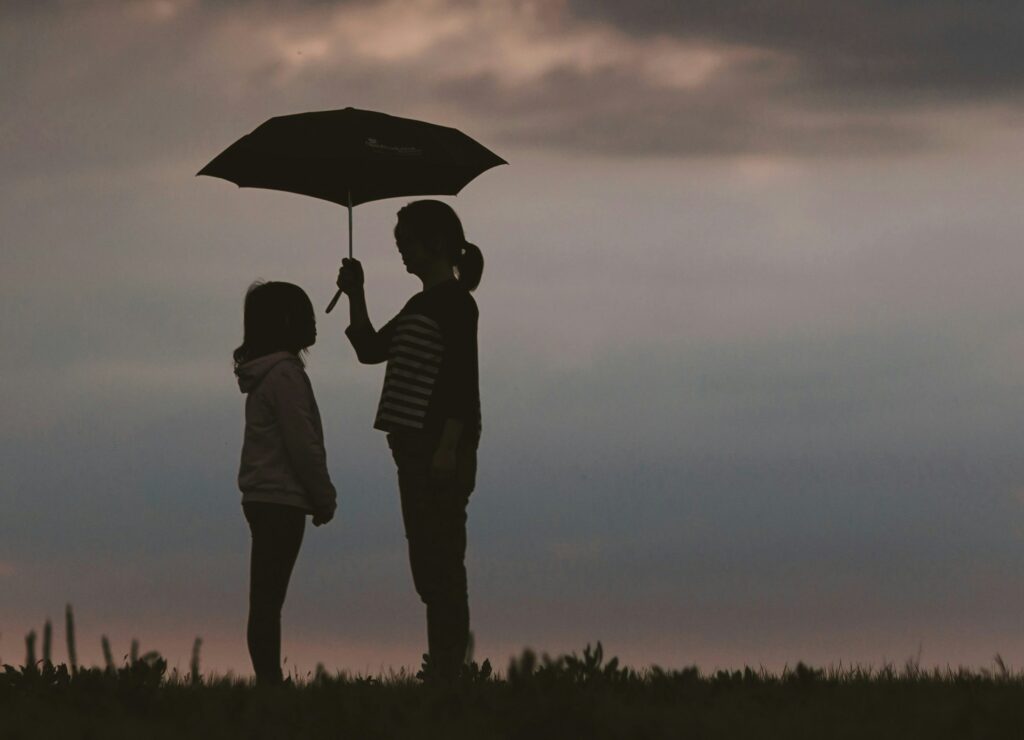Passing on Faith, Living with Doubt
“Mommy, I think you’re making this up.”
That’s what my 5 year-old daughter said to me when I had tried to answer her question: Can Jesus and Mary see us right now, in our living room?
Truthfully, my garbled answer didn’t even feel true to me. I’m not exactly sure what I said, but whatever it was felt unconvincing. It wasn’t an answer that I would have been satisfied with, so why should she be?
Still, I was a little stung by her comment. Kids have strong bullshit detectors, and of course, I don’t want her to think our faith is nothing more than a collection of unconvincing explanations of invisible (alleged) realities. I went into another room to put away some laundry and tried to figure out a way to salvage the interaction. The only way forward, I realized, was to be honest.
“You asked me before if Jesus and Mary can see us in our living room. The truth is, I don’t really know. I know that when I pray, I feel like God hears me, and I think Jesus and Mary and everyone in Heaven can see us when we call on them. But honestly, I don’t know how. There are lots of things I don’t know about God.”
She reflected a little and then shrugged. “Oh, ok!” She seemed more satisfied with my admission than she had done with my attempt to offer her a concrete answer. I had leveled with her and let her know that grown ups, too, have questions about God and faith.
My own beliefs still feel very much “under construction.” Of course, faith evolves for everyone, but as an adult convert, there are many aspects of the daily practice of Catholicism that still feel unnatural to me—things as simple as talking about God and prayer. Without any framework for what it means to grow up with an active spiritual life, I routinely find myself second guessing how I should guide my kids along their own journeys with God. Their tender young hearts are so willing to absorb what I teach them that I feel an enormous responsibility to make sure I give them the means to develop a faith life, whilst allowing them space to explore their own thoughts and feelings about the big questions.
My oldest child, just shy of six, is really only now beginning to interrogate the things we hear at church, in our prayers, and in conversations about God at home. So I have no answers, but I have questions that you might have too—and I have hopes. In particular, I hope that faith will feel like a gift to them, and not a burden.
It can be very difficult as caregivers to trust that God is capable of forming a relationship with our children with little intervention from us. We feel that we have to act as mediators between God and our kids, to micromanage how our kids relate to the Divine. In a sense, feeling quite unsure of my own faith has been helpful in this regard; the inclination to tell my kids what to believe, or how to make sense of the more mysterious aspects of faith, is much weaker when there are many things that continue to confound me.
I don’t want them to simply parrot pious words that I teach them or for them to believe what I told them is true simply because I said so. My hope is that they will experience faith as a compelling, beautiful invitation: an invitation to relationship with their Creator, an invitation to experience love and consolation in prayer, an invitation to partake in the rich traditions and history of the Church. My own experience has taught me that this invitation must be freely accepted, and that accepting it is not a one time event. Furthermore, their feelings about the invitation might not always be simple—there will be times when they reject it, or accept only begrudgingly. That’s ok, too.
I know this to be true because my own “yes” is often more of an “ok, I guess.” I chose faith for myself as an adult, and so my decision to live my life within the Catholic tradition is entirely my own. Yet I often feel unsure of how to be Catholic when there are so many questions constantly bubbling close to the surface of my belief—but my mustard seed faith persists in spite of them.
I want my kids to know that big questions and doubts do not undermine faith; if anything, they are an integral part of an enduring faith. The absence of certainty does not exclude any of us from partaking in a life enriched by faith. In fact, it puts us in the company of many, many holy men and women through the centuries and millennia (“Doubting Thomas,” St. Teresa of Calcutta, St. Thérèse of Lisieux, and St. Jane de Chantal, to name but a few).
We don’t need to be afraid of doubt—either our own doubts, or those of our kids. Doubt fuels questions, and questions lead to deeper and more authentic relationships, including with God. The goal is not certainty, but a relationship with God that grows ever deeper and wider, and, contrary to our human desire to understand, an increasing awareness of how little we know of the Divine. So I embrace my own doubts and those of my children. I will encourage them to ask questions alongside me. And ultimately, I have to loosen my grip, and set them free to follow their own journeys of faith and doubt.

